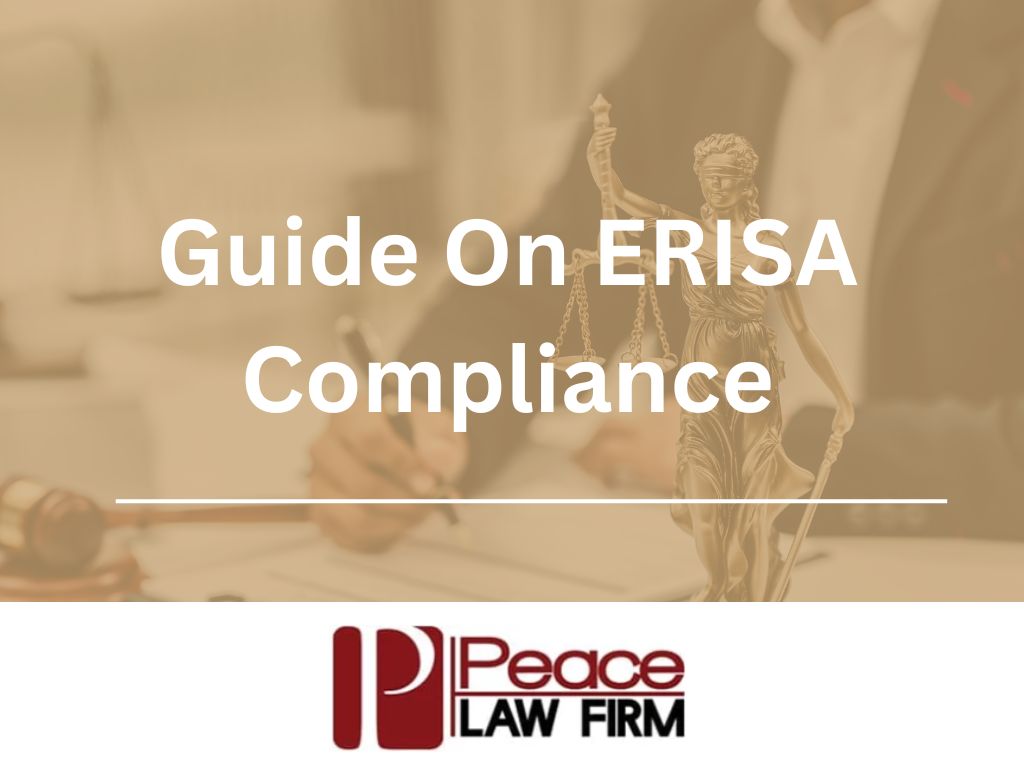Guide On ERISA Compliance

Administering group benefits plans is one of an employer’s most important responsibilities. To ensure employers fulfill their duty to employees, the federal Employee Retirement Income Security Act (ERISA) upholds a set of standards businesses must follow when managing retirement and other qualifying benefits plans. Employers who fail to comply with these regulations can face legal penalties for neglecting their fiduciary duties.
This blog post will provide an overview of ERISA compliance requirements for employers. We’ll discuss how ERISA works, some steps required to stay ERISA compliant, and the penalties for non-compliance.
What Is ERISA?
The Employee Retirement Income Security Act (ERISA) is a federal law that oversees how private employers administer retirement plans, insurance policies, and other group benefit plans. The law aims to protect the rights of employees who rely on certain employer-sponsored benefits, including:
- Health insurance,
- Short-term or long-term disability,
- Life insurance,
- Retirement, and
- Other specific employee assistance programs.
ERISA doesn’t require private employers to offer any of these benefits. Instead, it establishes minimum standards for the private employers who choose to maintain benefit plans. ERISA generally does not cover group benefits provided by public employers or religious institutions.
Historically, the administration of employee benefits was plagued by mismanagement, corruption, and abuse on the side of businesses and insurers. Today, ERISA provides oversight to ensure employer fiduciaries act responsibly when managing employees’ assets and benefits. The law establishes a procedure for employees to report and remedy violations of their rights or other breaches of fiduciary duties to the Department of Labor.
What Is Required to Be ERISA Compliant?
Employers who oversee employee retirement and benefits plans must fulfill specific legal requirements to stay compliant under ERISA. Some of these are general standards of conduct that apply whenever an employer handles an employee’s benefits. Others are semi-annual tasks that must be completed by set deadlines.
On-Going Requirements
Staying ERISA compliant means following certain basic rules when administering group benefits. Some essential tasks on the ERISA compliance checklist include:
- Allowing employees to enroll once they meet age and service requirements;
- Maintaining designated written documents outlining the terms and conditions of each available benefit plan;
- Distributing a Summary Plan Description (SPD) to each plan participant within 90 days of enrollment;
- Establishing a written procedure for processing benefit claims and appeals;
- Communicating the benefit claims procedure to plan participants;
- Passing IRS-mandated tests to ensure benefits are distributed equitably;
- Retaining participant plan records for six years after each filing date;
- Protecting confidential health information under HIPAA;
- Depositing employee wage deferrals promptly;
- Updating plan documents with any revisions; and
- Informing plan participants about any changes.
Beyond these specific tasks, employer fiduciaries are expected to exercise discretion when managing employee assets and benefits. This includes acting prudently and in the best interests of plan participants at all times.
Calendar-Based Requirements
ERISA compliance also requires employers to complete tasks throughout the calendar year. This generally includes the following deadlines:
- First quarter. Employers must provide benefit statements for the end of the prior year. Employees should receive these within 45 days of the quarter’s end.
- Second quarter. Employers must provide the required minimum distribution (RMD) to plan participants who are 73, and they should distribute any excessive deferrals over the IRC section 402(g) limit. Employees should receive first-quarter benefit statements within 45 days.
- Third quarter. Employers must send participants the Summary Annual Report from the prior year and notify them of any modifications or updates. They must also file Form 5500 with the Department of Labor (or request an extension) and distribute benefit statements from the second quarter.
- Fourth quarter. Employers must correct any discrepancies detected in nondiscrimination tests and inform any relevant participants. Employers must also pay excise taxes and ensure participants receive their third-quarter benefit statements.
Staying on top of these deadlines is an essential part of an employer’s compliance checklist.
What Are the Penalties for ERISA Non-Compliance?
Employers who fail to comply with ERISA’s regulations can face civil penalties for their oversights. Civil penalties for ERISA non-compliance can vary depending on the type of violation.
Typically, these penalties are fines designed to help employees recover from the benefits wrongfully withheld or denied. The level of intent involved in a violation can also impact the value of the penalty applied.
Employers can suffer additional sanctions from the Department of Labor for failing to comply with ERISA regulations, including loss of tax-favored status and potential criminal charges.
Trusted Advocate for Your ERISA Concerns
Employees depend on their employer to properly manage the benefits plans that safeguard their healthcare, future financial security, and more. When employers disregard their fiduciary duties, employees deserve to exercise their legal rights to hold them responsible.
At The Peace Law Firm, we’ve spent almost two decades helping South Carolina employees navigate their rights under ERISA. ERISA Attorney John Peace has extensive experience guiding employees through various ERISA disputes, from employer non-compliance to claims appeals.
If you’re concerned about your ERISA rights and benefits, contact our office today to schedule a free, no-obligation consultation.
